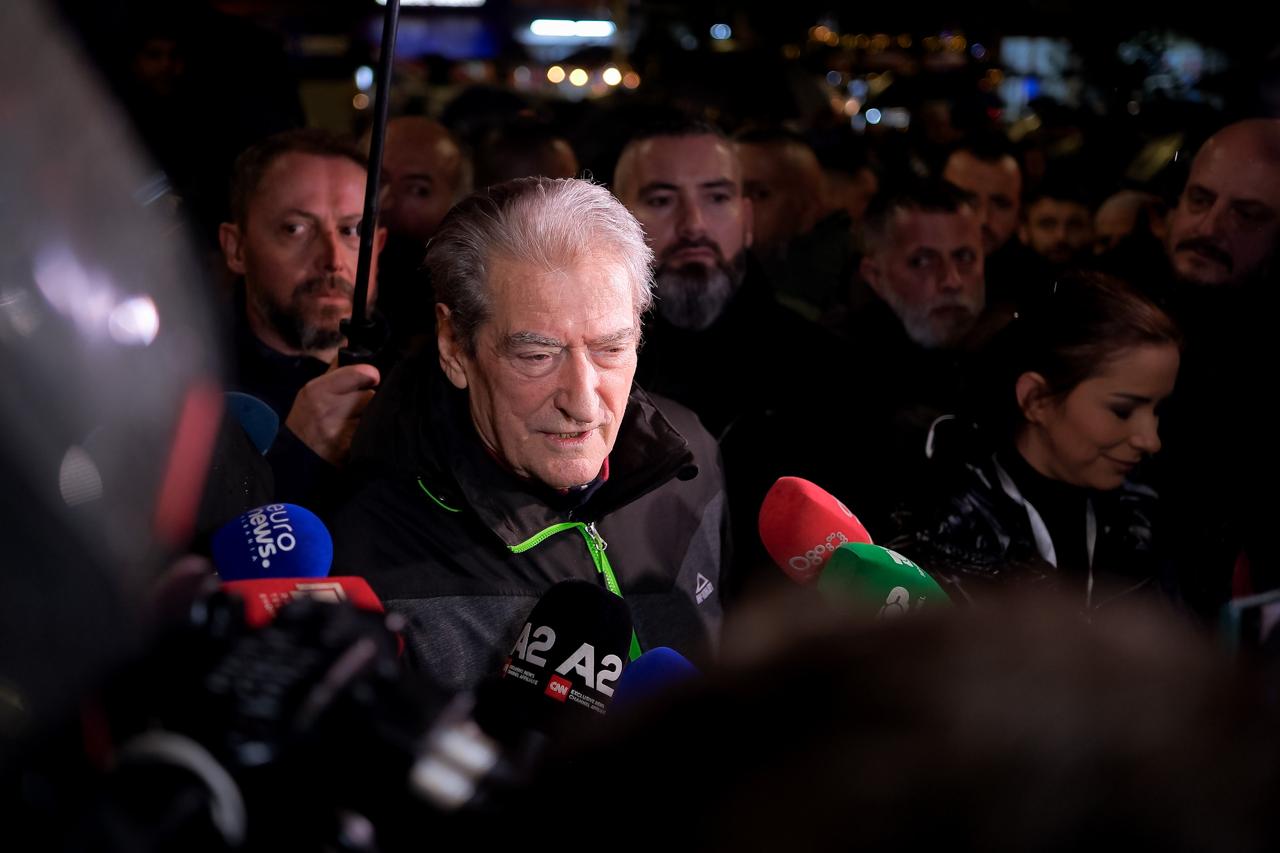Editorial note: The opposition’s protest that wasn’t

The latest civil disobedience protest organized by Albania’s Democratic Party (DP) has come and gone, leaving barely a ripple in its wake. Held under relentless cold rain, the protest seemed to reflect the weather. Protesters – in smaller numbers than ever – gathered at five major road junctions in Tirana, creating minor disruptions to traffic for three hours, but drawing more frustration than sympathy from the citizens navigating Tirana’s nightmarish holiday shopping congestion.
A protest without resonance: This was the fourth protest organized by DP since October, apparently aimed at galvanizing its supporters. Instead, it became a display of the opposition’s limitations. Outnumbered by the police, who looked less antagonistic than simply cold and reluctant in the face of the weather, the protesters struggled to articulate their grievances. Interviews conducted on the ground revealed confusion even among participants, while journalists covering the event seemed equally puzzled about the protest’s goals.
Efforts to inject drama into the evening, by exploiting the collapse of Deputy Speaker of Parliament Agron Gjekmarkaj who seems to have fainted during the protest, did little to salvage the narrative. Predictably, DP leader Sali Berisha seized on the incident, accusing the police of assaulting Gjekmarkaj. However, the public reaction was largely indifferent, a reflection perhaps, of the fact that during his 34-year political career as leader of DP, Berisha has used up most of his credibility credit. Videos circulating from the protest further undermined his claims. They showed no altercation and simply reinforced the impression that this was yet another attempt by Berisha to manufacture outrage.
A strategy lacking direction: Blocking roads as a form of protest is technically illegal, yet it appears to be tolerated by the authorities, raising questions about law enforcement and the judiciary’s leniency. But a more pressing question looms over these protests: Why does the DP organize them at all?
The timing, during the holiday season, and the absence of a coherent message make these demonstrations perplexing. It seems the opposition is grasping for relevance as Albania heads toward parliamentary elections on May 11. Instead of demonstrating strength or momentum, however, the protests expose a party in crisis. This is a fractured opposition, one that has run out of ideas and is in desperate need of renewal. Yet it continues to rely on the same methods, the same ideas, and the same familiar faces—fronted by Berisha—who have led the DP from defeat to more crushing defeat since the 2013 general elections. This is not a party preparing for victory; it is a party sleepwalking toward yet another electoral disaster.
For Berisha, a leader known for his fiery rhetoric and combative style, the latest protest underscores his inability to mobilize support. His attempts to energize his base by targeting the government and police through civil disobedience are falling flat. With the Socialist Party enjoying a commanding double-digit lead in the polls, such protests are unlikely to shift the political landscape.
A sorry state of affairs: At its core, this latest protest highlights the Democratic Party’s declining influence. If DP hopes to remain a relevant force in Albanian politics, it will need to rethink its strategy—quickly. The May elections are fast approaching, and unless the opposition can find a way to connect with voters meaningfully, its electoral prospects look bleak. As it stands, this is not an opposition offering a compelling alternative. It is an opposition marking time, hoping for a miracle. But in politics, miracles are no substitute for strategy.


